

Navigating the Challenges of Self-Checkout Systems in Retail
The implementation of self-checkout systems in retail is a growing trend, driven by the need for efficiency and cost reduction. But this innovation comes with its own set of challenges of self-checkout systems, particularly in terms of self-checkout fraud prevention and self-checkout security risks. In this article, we will explore the top-5 types of self-checkout fraud, some common self-checkout frauds, and how to prevent self-checkout theft effectively.
The Appeal of Self-Checkout Systems in Retail
Self-checkout systems in retail offer numerous advantages. They reduce the need for cashiers, lower labor costs, and allow for more checkout points in a store. This increases the store's throughput and enhances customer satisfaction by reducing wait times. Additionally, self-checkout systems are perceived as modern and innovative, boosting the retailer's image.
Challenges of Self-Checkout Systems and Security Risks
Despite these benefits, self-checkout security risks are a major concern. One of the most significant risks is the increase in self-checkout fraud and theft. The absence of direct human oversight can embolden dishonest customers to exploit the system. Additionally, self-checkout technology risks can sometimes cause failures, leading to unintentional errors that result in losses for the store.
Common Self-Checkout Frauds and How to Prevent Them
• Non-Payment with Receipt Cancellation: Customers may pretend to pay by swiping their card but cancel the transaction before it completes, leaving with unpaid goods. Retailers combat this by using surveillance cameras and self-checkout fraud prevention technologies that notify staff of canceled transactions.
• Item Skipping During Scanning: Customers might deliberately bypass scanning certain items. To counter this, stores use self-checkout security solutions such as cameras and software that detect discrepancies between scanned items and those placed in the bagging area.
• Single Item Pricing for Multipacks: Fraudsters might scan a single item from a multipack, paying less than the actual price. Self-checkout theft prevention systems help address this by recognizing multipack barcodes and adjusting pricing accordingly.
• Substituting Discounted Items: Customers might weigh fresh items as discounted ones. Advanced scales and video analytics help identify such discrepancies, although these technologies can be costly.
• Fake Coupons: The use of counterfeit coupons is another common self-checkout fraud. Retailers need robust self-checkout fraud detection system to quickly identify and block fraudulent coupons.
The Role of TRASSIR ActivePOS in Self-Checkout Fraud Prevention
That is why technologies like TRASSIR ActivePOS are becoming essential for self-checkout fraud prevention. This smart module synchronizes POS events with video streams, allowing for real-time monitoring and incident detection. It automatically detects alarm incidents at the checkout and alerts operators with a short video clip for verification. With features like a single interface for multiple outlets, interactive reports, and built-in violation detectors, ActivePOS supports self-checkout systems in retail and offers flexible filtering and event sorting options. This technology not only aids in self-checkout theft prevention but also facilitates efficient conflict resolution with customers.
Conclusion: Enhancing Self-Checkout Security Solutions
While self-checkout systems offer significant benefits, they also present new challenges of self-checkout systems in terms of self-checkout security risks. Retailers must invest in advanced self-checkout security solutions and staff training to mitigate these risks. By doing so, they can continue to enjoy the advantages of self-checkout systems in retail while minimizing potential losses.
What's New?
All news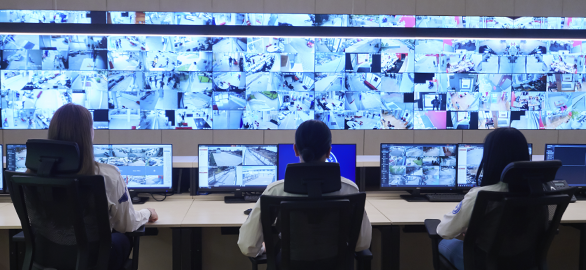
When Every Second Counts: Clarity in Shopping Mall and Warehouse Security
When Every Second Counts: Clarity in Shopping Mall and Warehouse Security

Welcoming Our New Platinum Partner: KARADAĞ ELEKTRONİK ARAÇLAR SAN. VE TİC. A.Ş.
Welcoming Our New Platinum Partner: KARADAĞ ELEKTRONİK ARAÇLAR SAN. VE TİC. A.Ş.

Strengthening Traffic Monitoring for Adıyaman Besni District Gendarmerie with TRASSIR
Strengthening Traffic Monitoring for Adıyaman Besni District Gendarmerie with TRASSIR
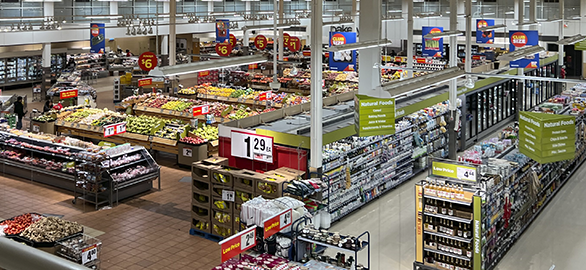
How to Choose the Right Surveillance Cameras for Retail: Zone-Based Guidance with DORI Standards in Mind
How to Choose the Right Surveillance Cameras for Retail: Zone-Based Guidance with DORI Standards in Mind

Welcoming Our New Platinum Partner: BİSAVUNMA GÜVENLİK VE RADAR SİSTEMLERİ SANAYİ TİCARET LİMİTED ŞİRKETİ
Welcoming Our New Platinum Partner: BİSAVUNMA GÜVENLİK VE RADAR SİSTEMLERİ SANAYİ TİCARET LİMİTED ŞİRKETİ
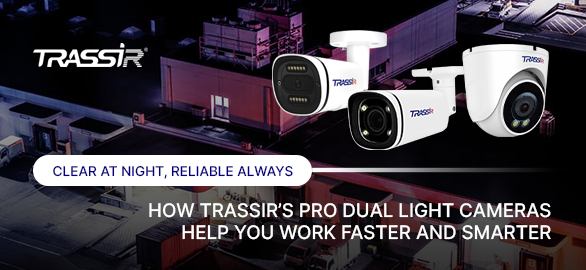
How TRASSIR’s PRO Dual Light Cameras Help You Work Faster and Smarter
How TRASSIR’s PRO Dual Light Cameras Help You Work Faster and Smarter

No More Blind Spots: How TRASSIR Reduces Losses and Investigation Time in Warehouses
No More Blind Spots: How TRASSIR Reduces Losses and Investigation Time in Warehouses

Welcoming Our New Gold Partner: DG Bilgisayar ve Yazılım Destek Hizmetleri
Welcoming Our New Gold Partner: DG Bilgisayar ve Yazılım Destek Hizmetleri
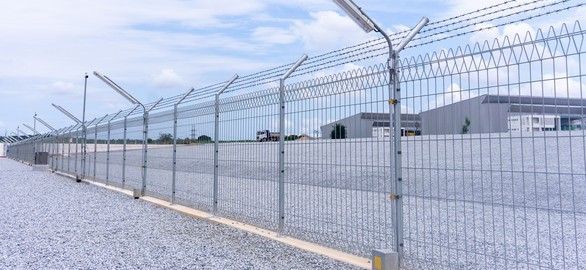
Beyond the Perimeter: How TRASSIR Protects What’s Outside Your Factory Walls
Beyond the Perimeter: How TRASSIR Protects What’s Outside Your Factory Walls

Welcoming Our New Platinum Partner: KARE BİLGİSAYAR SANAYİ VE TİCARET ANONİM ŞİRKETİ
Welcoming Our New Platinum Partner: KARE BİLGİSAYAR SANAYİ VE TİCARET ANONİM ŞİRKETİ

TRASSIR Launches New Cameras with Dual Illumination to Reduce Incident Investigation Time
TRASSIR Launches New Cameras with Dual Illumination to Reduce Incident Investigation Time

Welcoming Our New Platinum Partner: ZNA TEKNOLOJI
Welcoming Our New Platinum Partner: ZNA TEKNOLOJI

Keeping Things Moving: How TRASSIR Helps Logistics Run Smoothly
Keeping Things Moving: How TRASSIR Helps Logistics Run Smoothly

Welcoming Our New Platinum Partner: LION TECHNOLOGY
Welcoming Our New Platinum Partner: LION TECHNOLOGY

New Success Story: Industrial-Grade Security at Mirbey Plastik
New Success Story: Industrial-Grade Security at Mirbey Plastik

AI-Powered Insights for Retail Security in Türkiye: How TRASSIR’s intelligent video analytics transform retail surveillance
AI-Powered Insights for Retail Security in Türkiye: How TRASSIR’s intelligent video analytics transform retail surveillance

Our First Step into Global Retail: Highlights from Retail Days 2025
Our First Step into Global Retail: Highlights from Retail Days 2025

Transforming Campus Safety: TRASSIR’s Proactive Approach to Protection
Transforming Campus Safety: TRASSIR’s Proactive Approach to Protection
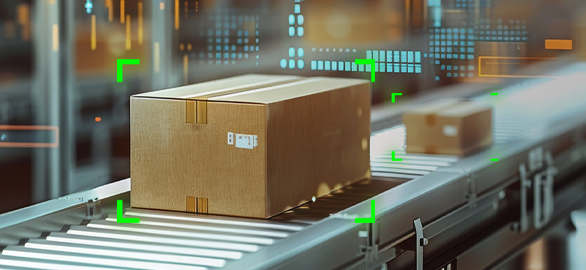
Smarter Surveillance, Smoother Manufacturing
Smarter Surveillance, Smoother Manufacturing

TRASSIR Solutions to Be Featured at Securex South Africa 2025 by neaMetrics
TRASSIR Solutions to Be Featured at Securex South Africa 2025 by neaMetrics
Try TRASSIR For Your Business
Learn more about how TRASSIR analytic modules work! Demo mode is an opportunity to see for yourself how the system works, and also check the interface and test all the functions.Success!
We will contact you as soon as possible